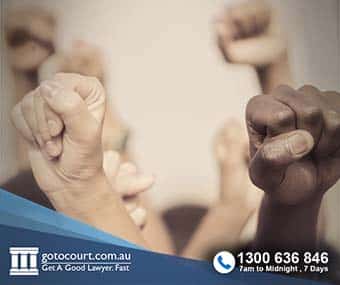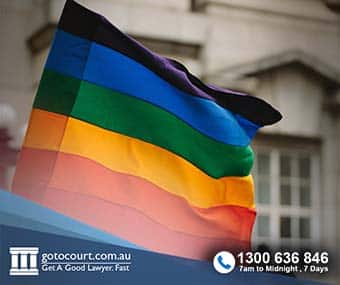LGBTIQ Rights (ACT)
The ACT is one of the most progressive Australian jurisdictions with respect to the rights of lesbian, gay, bisexual, transgender, intersex and queer (LGBTIQ) people. The ACT returned a higher ‘Yes’ response than any other state or territory in the 2017 same-sex marriage postal vote, with 74% voting yes. Although ACT law contains many protections for LGBTIQ rights, lobby groups are still campaigning for improvements in several areas.
Sexual activity
Consensual male homosexual sex has been legal in the ACT since 1976. Sexual activity between women has always been legal. The age of consent was 18 for male to male sex but 16 for heterosexual sex until 1985, when the age of consent was equalised.
Men with criminal convictions on their records for consensual gay sex have been able to apply to have these convictions expunged since 2015.
Relationship recognition
The ACT passed the Domestic Relationships Act in 1994, making it the first Australian jurisdiction to recognise same-sex relationships. The act defined a domestic partnership in gender non-specific terms, allowing for equal recognition of same-sex and different-sex de facto relationships. The act provided for the distribution of finances upon separation and inheritance upon death.
The Civil Partnerships Act of 2008 gave same-sex couples the right to take part in a partnership ceremony, making the ACT the first state or territory to legalise civil partnership ceremonies for same-sex couples.
The Civil Unions Act of 2012 granted many of the same rights to same-sex couples as enjoyed by married couples.
The Marriage Equality (Same-Sex) Act would have legalised same-sex marriage in the ACT in 2013, however this was ruled invalid by the High Court, which ruled the ACT government did not have the power to legislate in respect of marriage.
Same-sex marriage became legal in the ACT in December 2017, along with in the rest of the country.
Discrimination and LGBTIQ rights
LGBTIQ rights are protected in the ACT under the Australian Capital Territory Discrimination Act 1991, which includes sex, sexuality, intersex status, gender identity and HIV/AIDS status as prescribed attributes. Complaints of discrimination, sexual harassment or vilification can be made to the ACT Human Rights Commission.
Transgender and intersex people can change the sex listed on their birth certificate under the Births, Deaths and Marriages Registration Amendment Act 2014. There is no requirement to undergo sexual reassignment surgery before changing one’s sex on a birth certificate and one’s sex can be changed to ‘male’, ‘female’ or ‘x’, with certification from a doctor or psychologist.
LBGTIQ rights are also protected in the ACT under the federal Sex Discrimination Act. Complaints under the federal legislation can be made to the Australian Human Rights Commission.
Adoption and parenting rights
The ACT Adoption Act was amended in 2004 to describe couples eligible to adopt in gender non-specific terms. Same-sex couples can foster children in the ACT. Partners of lesbians who conceive via IVF have been recognised as legal parents since 2004.
Intersex rights
The ACT is one of only three Australian jurisdictions that possess specific provisions protecting the rights of intersex people (the other two are South Australia and Tasmania).
Intersex lobby groups have called for further protections in the form of the criminalisation of deferrable intersex medical interventions on children without the child’s consent and an end to the legal classification of sex.
Conversion therapy
In 2018, the ACT government expressed support for a ban on the practice of conversion therapy on minors. Conversion therapy is the pseudo-scientific practice of trying to change a person’s sexual orientation through spiritual or psychological therapy. Medical bodies warn that conversion therapy is ineffective and can be harmful. Conversion therapy has been outlawed in parts of Europe and parts of Asia.
The ACT has not yet passed a law protecting LGBTIQ rights by outlawing conversion therapy.
If you require legal advice or representation please contact Go To Court Lawyers.








